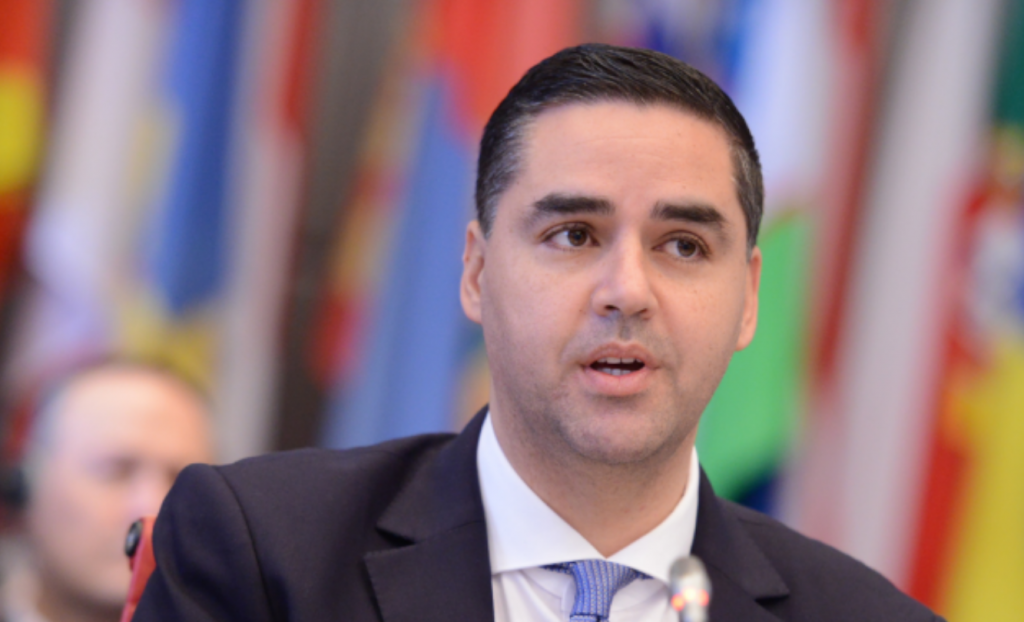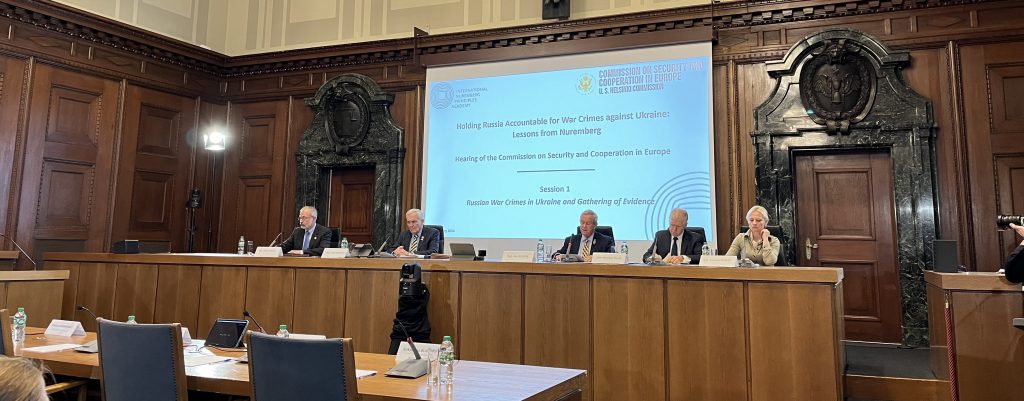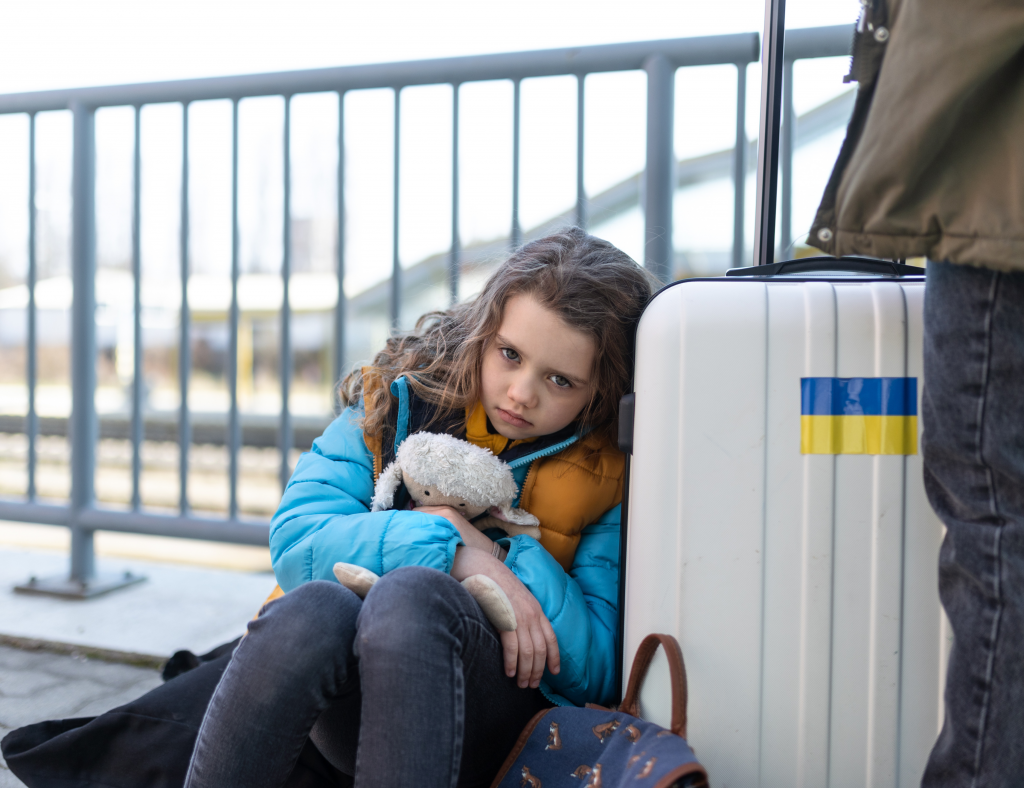The Helsinki Commission organizes both public and staff briefings with expert witnesses on OSCE-related issues ranging from human rights and fundamental freedoms to terrorism and corruption.
RELATED CONTENT

Malta: Leading the OSCE Through Turbulent Times
Apr 16, 2024WASHINGTON—The Republic of Malta stepped up to take leadership of the world’s largest regional security organization—the Organization for Security and Cooperation in Europe (OSCE)—demonstrating its commitment to uphold the principles of the organization, including on security, conflict resolution, democracy and human rights. Two years into Putin’s brutal, full-scale invasion of Ukraine, much of the […]

HEARING – The Republic of Malta: Leading the O...
Apr 10, 2024Tuesday, April 16, 2024 1:00 p.m. to 2:30 p.m. Rayburn 2247 Stream live here: https: https://youtube.com/live/TddF3ycKl1A WASHINGTON—The Republic of Malta stepped up to take leadership of the world’s largest regional security organization—the Organization for Security and Cooperation in Europe (OSCE)—demonstrating its commitment to uphold the principles of the organization, including on security, conflict resolution, democracy and […]

Helsinki Commission Senate leadership Statement on R...
Apr 05, 2024WASHINGTON, DC—In response to the Georgian government’s announcement that it intends in the coming days to reintroduce Russian-style “foreign agent” legislation, U.S. Helsinki Commission Co-Chairman Ben Cardin (Chairman, Senate Foreign Relations Committee) and Senate Ranking Member Senator Roger Wicker (Ranking Member, Senate Armed Services Committee) issued the following statement: “This is a deliberate attack on […]

U.S. Helsinki Commissioners Issue Statement in Nurem...
Mar 20, 2024February 20, 2024 Nuremberg, Germany Court Room 600 NUREMBERG, GERMANY—U.S. Helsinki Commission Chairman Joe Wilson (SC-02), Helsinki Commissioners Senator Thom Tillis (NC) and Congresswoman Victoria Spartz (IN-05), Congressman Lloyd Doggett (TX-37) and Congressman Andy Harris (MD-01) led a field hearing on February 20 to examine how best to bring Russian perpetrators to account for their […]

FIELD HEARING–Holding Russia Accountable for its War...
Feb 20, 2024Session One: Russian crimes against Ukraine’s children, women, and civilians, as well as the use of new technologies in the collection of evidence Session Two: Holding the Russian state and affiliated individuals accountable through courts and international mechanisms Congresswomen Jackson Lee’s Audio Statement from for the Field Hearing: “Lessons from Nuremberg”

Helsinki Commission Leadership Responds to Murder of...
Feb 16, 2024WASHINGTON — Following reports of Alexei Navalny’s death in prison, Helsinki Commission Chairman Representative Joe Wilson (SC-02) and Ranking Member Steve Cohen (TN-09) issued the following joint statement: “Alexei Navalny dedicated his life to seeing Russia free and at peace. Despite every cruel obstacle Putin placed in his way, even a near-fatal poisoning, he did not waver in his condemnation […]

Eyewitness Accounts: Ukrainian Children and Adult Ci...
Jan 31, 2024Russia’s abduction of thousands of Ukrainian children and adult civilians as part of its war on Ukraine calls for urgent U.S. and international action to both save Ukraine’s children and civilians and to hold Russia accountable for its war crimes. The Ukrainian government has documented close to 20,000 cases of children taken to Russia […]

Wilson, Whitehouse, Tillis, Jackson Lee Applaud Incl...
Dec 08, 2023WASHINGTON, DC – Representative Joe Wilson (SC-2), Chairman of the U.S. Helsinki Commission, Helsinki Commissioner Senator Sheldon Whitehouse (RI), Senator Thom Tillis (NC), and Representative Sheila Jackson Lee (TX-18) applauded the inclusion of the Foreign Extortion Prevention Act as part of the FY2024 National Defense Authorization Act (NDAA). “We cannot allow authoritarians to extort American […]

Making Russia Pay: Sovereign Asset Confiscation for ...
Dec 06, 2023In response to Russia’s invasion of Ukraine, the United States and its partners and allies have frozen an estimated $350 billion in Russian reserves held abroad. Members of Congress – including members of the Commission on Security and Cooperation in Europe (CSCE) – and experts have advocated for governments to confiscate and repurpose these funds […]

Hearing – Making Russia Pay: Sovereign Asset Confisc...
Nov 30, 2023HEARING NOTICE – Making Russia Pay: Sovereign Asset Confiscation for Ukrainian Victory Wednesday, December 6th 2:00-3:30 PM Dirksen Senate Office Building 608 Stream live here: https://youtube.com/live/9X0Ip2wjogs In response to Russia’s invasion of Ukraine, the United States and its partners and allies have frozen an estimated $350 billion in Russian reserves held abroad. Members of Congress […]

CSCE Leadership Welcomes New Executive Branch Commis...
Nov 07, 2023WASHINGTON—The U.S. Commission on Security and Cooperation in Europe (CSCE), also known as the U.S. Helsinki Commission, today announced the appointment of three Executive Branch Commissioners to the Commission. CSCE welcomed Assistant Secretary of Defense for International Security Affairs Celeste Wallander, Deputy Secretary of Commerce Donet Dominic Graves, Jr., and Department of State Coordinator for […]

